After weathering a perfect storm of US strikes and a slowdown in commissioning, UK studios are cautiously optimistic about the coming year
For a while this year, it seemed like many studios’ worst fears were coming home – after all, studios don’t make money if their space is vacant.
The US actors’ and writers’ strikes compounded an existing climate of high interest rates and adjustments to higher Pact/Bectu rates, while a slowdown in broadcaster commissions due to the weak advertising market delivered the perfect storm. All studios, ancillary services, production services and freelance crew were affected – but some fared better than others.
Broadly, studios reliant on tentpole features and HETV drama experienced a lean summer, while those with a mix of clientele proved more resilient.

Dock 10 head of studios Andy Waters says the studio has “fortunately been insulated by long-running favourites”.
To Blue Peter, Match Of the Day, Question Of Sport, Countdown and University Challenge the studio added a 20-show run of Remarkable’s Deal Or No Deal, ITV format The 1% Club (Magnum Media), and Whisper North’s reboots of Jeopardy!, hosted by Stephen Fry, and Wheel Of Fortune, helmed by Graham Norton. But even so, its roster of light entertainment shows was lighter than in previous years.
“It’s not been a great year, with a definite reduction in spend by broadcasters,” Waters admits. “The BBC has endured two years of licence fee freeze at a time of huge inflation while ad revenue for commercial broadcasters has been flat.” But BBC coverage for Euro 2024 is in the works, so “we are optimistic,” says Waters.
Most other studios had to contend with an exodus of enquiries, let alone solid bookings, when the SAG-AFTRA strike hit. Bristol’s The Bottle Yard, for example, had two enquiries for drama postponed or cancelled, leaving a gap in occupancy. Where The Bottle Yard would expect 75% occupancy this autumn, it is currently at 25%.
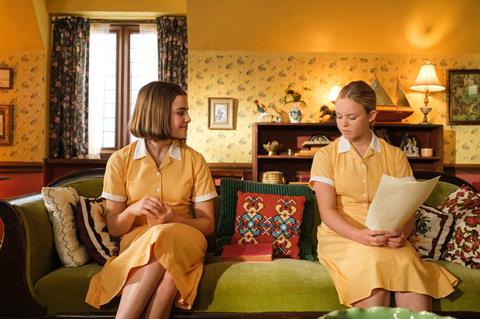
Despite this, Bristol City Council head of film Laura Aviles is upbeat, pointing to the productions involving non-US actors that were able to continue over the summer: Disney+ Jilly Cooper adaptation Rivals (Happy Prince) and the fifth series of Malory Towers (King Bert Productions for CBBC), marking the first time the children’s drama had been based at a UK studio.
“Since the actors’ strike was resolved, enquiries have significantly increased,” Aviles says. “Next year is looking very healthy and back to normal levels.”
She adds: “The Bottle Yard has an additional layer of resilience in the breadth of our offer - from smaller, cheaper soundproof stages for children’s productions and UK indie films to premium sound studios for bigger-budget productions. Having that flexibility has enabled us to maintain a steady ship through these disruptive times.”
At Maidstone Studios, there’s a similar story of versatility in adversity. “From spring into summer, we got quote after quote as normal but overnight [with the strikes] everything changed,” says commercial director Josephine Clark. “The amount of work we’d normally expect reduced. Some shows weren’t returning, others weren’t commissioned.”
“Because we’re not catering to any one thing, I am incredibly positive for 2024”
Josephine Clark, Maidstone Studios
The studio was kept going with regular tenants Family Fortunes, Catchphrase and Blankety Blank, and shows like Sky Kids’ The Makery and the third run of Optomen’s Sort Your Life Out (BBC1), plus commercials.
“Some years we’re quite high on sports, other years on light entertainment or drama,” Clarke says. “Because we’re not catering to any one thing, I am incredibly positive for 2024.”
The first couple of quarters are booked with light-entertainment shows and other bookings are “heavily pencilled” through into 2025.
“I don’t think the experience will be like the post-pandemic bounceback,” Clark says. “It will be slow. TV is gearing up now and film will gear up in the summer.”
For studios reliant on major scripted drama, that upturn can’t come quickly enough.
After production of Euston Films’ BBC drama Midnight Sleeper wrapped up in August, conversations about shows lined up to follow it “died overnight” with the strikes, says Pioneer Film Studios digital director and co-founder Jamie McCoy. “Because the industry is so US-dominated, everyone more or less downed tools. It’s unlikely anything will kick off until the new year.”
Pioneer aims to attract HETV and major film, and sells itself as much on its location near Glasgow as its facilities. “The flywheel for booking a studio is a long conversation,” says McCoy. “Streamers don’t just come for the studio. Their decision depends on location, crew and access. Our major advantage is our proximity to Glasgow, which is a chameleon city that can turn into Japan or London or Manhattan.”
Another advantage, he says, is the ability to offer cheaper rates than studios further south. “As London gets busier and more expensive, Scotland looks more attractive.”
The problem, of course, is that London has not been busy – but McCoy is confident this will resolve itself imminently. “As England starts to get full, Scottish facilities will beef up,” he says.
But he also sounds a note of caution about the long-term future: “Inward investment won’t last forever. It’s getting more competitive on an international level, with 40% tax incentives luring major productions elsewhere. There are few of these whales and more folk fishing.”
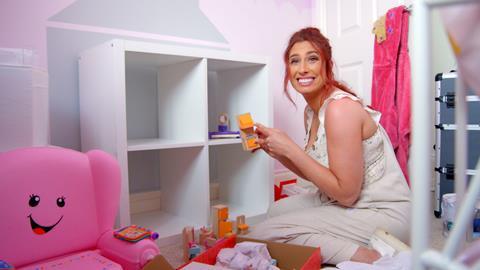
Perhaps benefiting from being in the middle of the country, “the north-west seems to have weathered [the storm] really well,” reports Liverpool Film Office director Lynn Saunders. There have been no cancellations as a result of the strikes, she says.
“Our suppliers and their crew have been busy. I know that story is not replicated in other areas.”
The reason for this, she reckons, is that as space in the south “was saturated by US streamers”, UK broadcast productions looked north, so when the strikes hit, they were less affected.
Since Liverpool’s The Depot, with its 40,000 sq ft of shooting space, opened in 2021, primarily aimed at HETV, it has hosted Sexy Beast (Paramount+), C4 drama The Gathering, produced by World Productions, and indie feature Midas Man, about the life of music entrepreneur Brian Epstein.
Locations across the region recently stood in for Bristol in ITV drama Archie, while Liverpool City funding of Jimmy McGovern drama Time brought that show to shoot in the city.
Planning permission has been submitted to convert the former home of Littlewoods, adjacent to The Depot, into studios, doubling the space and on track to open in 2025. “The Depot was driven by industry demand and meant productions spent longer on location, but it was also a short-term solution until the much bigger scheme came online,” says Saunders.
“It’s taking longer than usual for studios to put packages together, but we have bookings”
Nick Smith, Shinfield Studios
Sony’s Ghostbusters: Frozen Empire and LucasFilm’s Star Wars series The Acolyte finished photography at Shinfield Studios near Reading before the summer shutdown, but productions have been on hiatus since.
“It’s taking longer than usual for studios to put packages together, but we have bookings, a mix of streamers and studio features, for the first quarter of 2024,” reports managing director Nick Smith.
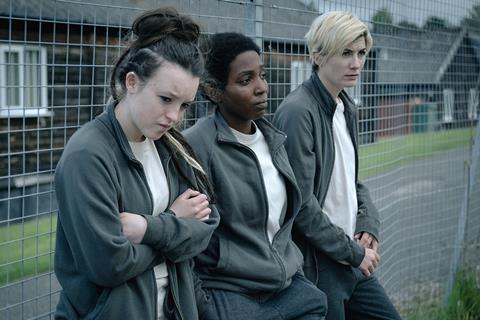
Having opened 13 stages over the past two years, Shinfield, which is owned by US-based Shadowbox Studios, used the hiatus to concentrate on finalising five more stages that are due to open by the end of February. The combined off er totals 1 million sq ft of studio space.
With warnings that streamers are trimming their content spend after decades of mounting investment, there is some doubt over whether the UK’s new studio capacity all be in demand in the medium term. “I wouldn’t be thinking about starting construction now,” Smith admits. “But given where we are in the cycle of [supply and demand], I believe we’ve got the best product in the UK, if not Europe.”
Notably, there are those who are taking the plunge, in spite of the concerns – Fulwell 73 advanced plans in November to build a £450m film studio in Sunderland, to open in 2027.
And, Smith says, studios with a strong off er will weather the storm. “There might be less [high-end production] in the market, but our approach hasn’t changed,” he says. “We are very confident that quality productions will come to us since there is no reason for productions to go to an inferior space when quality is now available.”
Regardless of business model, studios agree that all boats are lifted with a rising tide of skilled crew, so addressing the skills shortage is imperative. That’s why screen agencies, including Screen Yorkshire and Liverpool Film Office, have formed a trainee scheme with BFI funds at Screen Alliance North.
Before embarking on three new studios, The Bottle Yard knew it did not have enough local crew to support them. That’s why it is launching a new-entrants skills programme in 2024, with funding from the West of England Combined Authority, aimed at new talent from under-represented backgrounds.
Shinfield is working with Screen Berkshire to collate crew databases and is developing education initiatives with Reading University. “We selected Shinfield as a site in large part because of its catchment area for skilled crew,” says Smith. “This is a long game. We are here for 200 years, not two.”




















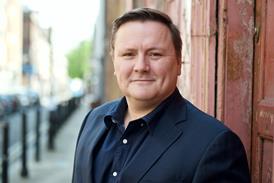
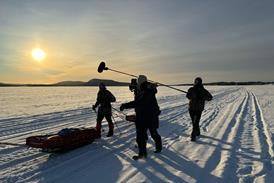








No comments yet